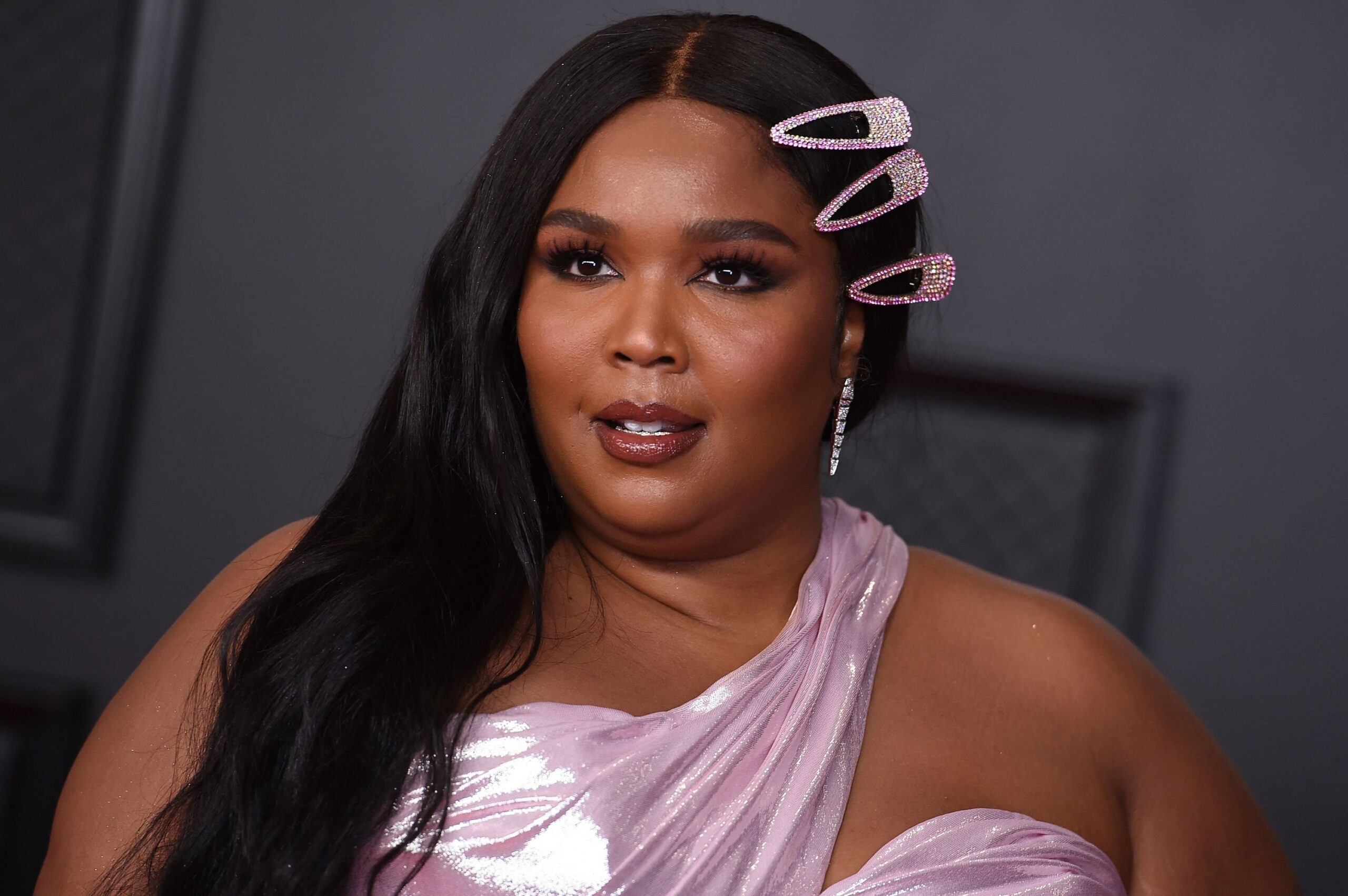
Lizzo at the 63rd Grammy Awards
Photo by Jordan Strauss (AP/Shutterstock)
Jillian Michaels has built a successful career on diet culture and fitness crazes.
The 45-year-old author, reality show personality, and celebrity personal trainer has an estimated net worth of $14 million, and some of her popular books and workout DVDs include the “30-Day Shred Diet,” Slim for Life, and The 6 Keys: Unlock Your Genetic Potential for Ageless Strength, Health, and Beauty. Yet now she says we shouldn’t focus too much on weight–particularly Lizzo’s weight.
While appearing on Buzzfeed News‘ morning show, Michaels recently criticized our collective love of Lizzo, especially the 31-year-old singer’s messages of body acceptance and self-love. Michaels began making an innocent point, seemingly criticizing how today’s most popular music artists aren’t just appreciated for their music; instead, artists become brands for their whole personality, lifestyle, and personal values. “Why are we celebrating [Lizzo’s] body? Why does it matter? Why aren’t we celebrating her music?” Michaels said, but then she didn’t stop. “‘Cause it isn’t gonna be awesome if she gets diabetes.” She added that while she and her kid loves her music, “There’s never been a moment where I’m like, ‘And I’m so glad she’s overweight.'”
While it’s true that artists shouldn’t be treated as icons of perfection or worshipped as god-like figures, many registered Michaels’ comments as body shaming the Grammy-nominated artist. Since it’s far from the first time Lizzo’s weight has been criticized, Michaels’ remarks reignited online debate over Lizzo’s personal health and whether or not she’s “glorifying obesity” by spreading body positive messages, which invited more trolls to make derogatory remarks about pop star Lizzo. Just days before Michaels appeared on Buzzfeed’s AM to DM show, Lizzo announced that she was quitting Twitter in 2020 because of the ongoing backlash she’d received about her size.
Jameela Jamil, actress and outspoken activist for body acceptance, responded to the whole discussion on Twitter, “Honestly can the world just get off Lizzo’s d-ck already? The woman can outrun, out dance, out sing, out sex, out earn and out do most of the wastes of space who pointlessly take time out of their day to criticize her. You aren’t fit to lick her designer boots.”
Michaels quickly took to Instagram to defend her remarks: “As I’ve stated repeatedly, we are all beautiful, worthy, and equally deserving,” she wrote. “I also feel strongly that we love ourselves enough to acknowledge there are serious health consequences that come with obesity — heart disease, diabetes, cancer to name only a few.” When asked by TMZ to comment on the backlash, Michaels stood by her statements, but first she claimed that she’s always used her platform to tell people, “Your weight and your size have no bearing or merit on your value, your beauty, your worth, your ability.”
Aside from her small empire of quick diets and “fitness secrets,” which either repackage the most basic information about nutrition and fitness as her own brand or promise unrealistic results, Michaels is perhaps best known as a recurring trainer onThe Biggest Loser. The exploitative and fat-shaming reality TV program has been widely criticized for its emphasis on weight loss as the key to transforming an individual’s entire well-being. Its emphasis on weight-loss results, in the form of a big reveal, undermines the kind of lifelong lifestyle changes and mental and emotional factors that contribute to fitness. W. Scott Butsch, Director of Obesity Medicine in the Bariatric and Metabolic Institute at the Cleveland Clinic, told The Cut, “The Biggest Loser befits this historical view of obesity that people are overweight because they eat too much and they don’t exercise.”
Michaels, like The Biggest Loser, propagates the prevailing myth that obesity is a “behavioral problem, as a character flaw or a lifestyle choice, whereas we know it’s this more biological dysfunction of a tightly regulated system,” as Butsch says. He critiqued fitness crazes that use blame to market an easy fix: “So all you have to do is get people to exercise more, like seven hours a day or something ridiculous, and then eat like 1,000 calories a day, and you should be fine,” he satirized. Former contestants on The Biggest Loser have publicly shared their experiences with not only regaining all the weight they lost but “brutal treatment” from the show’s producers, fat-shaming, non-stop supervision, and restricted contact with family members and loved ones while they participated.
Above all, Michaels can’t criticize people’s positive responses to Lizzo’s body (asking “why does it matter” and saying we shouldn’t even be discussing her body) and then criticize Lizzo’s body directly. She told TMZ, “We should value people based on their skills and their abilities; it should be irrelevant what size they are…. Her health is her business…,” and yet she continued to post and comment on Lizzo’s health based on her size. Somewhere in her marketing savvy brain, she confused size inclusivity (which is, in fact, the practice of accepting all body types and leaving people’s health as their own private matter) with denial of health science. She lamented to TMZ that doing so “isn’t just irresponsible; it’s dangerous. And it’s just not a lie I’m willing to tell because it’s politically correct.”
Yes, denying health science would be a dangerous lie. It’s too bad that she interprets people’s celebration of Lizzo’s size as denial of obesity’s health risks, rather than recognition of a person’s value regardless of their weight.













